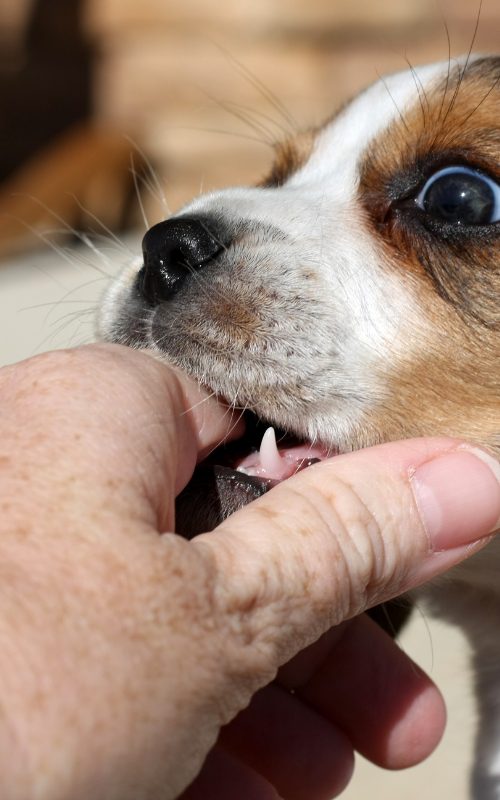From Playful Bites to Respectful Interactions: Addressing Your Dog’s Mouthy Behavior
Mouthy Dogs: A Real Issue
As a dog owner, you might experience instances where your puppy or adult dog gets mouthy during play or when they’re excited. They might bite your hands gently or sometimes more aggressively, even though they’re not trying to be mean. Despite the lack of malice, it’s essential to remember that this behavior is not acceptable.
Your Guide In Addressing The Issue
Since 2008, we have trained nearly 5,000 dogs. Here at Dog Owner’s Academy. We’ve encountered a plethora of behaviors, with mouthiness being one of the most common yet annoying. We have successfully helped thousands of owners turn this challenging behavior into a thing of the past.
Root Causes Of Mouthy Behavior
Contrary to common belief, a dog being mouthy is not simply because a puppy is teething, or your dog is trying to show you love. Multiple reasons can lead a dog to put their owner’s hands or feet in their mouths, and it’s never because they see you as a chew toy. Our training methods focus on identifying these underlying triggers, helping you, the dog owner, not only correct the behavior but also eliminate its causes for lasting improvements.
Tailor-Made Training Programs
At Dog Owner’s Academy, we believe in customizing each training program to fit your lifestyle and your dog’s unique personality. Our goal is to ensure your dog respects your commands, not out of fear, but out of understanding and obedience. To get a grasp on your situation, we invite you to schedule a free in-home consultation.
The Stress of A Mouthy Dog
Puppy teeth are sharp, and even playful bites can be painful. A mouthy dog can significantly reduce the bond between humans and their pets. It can be terrorizing to play with a mouthy puppy, and children in particular might develop a fear of dogs. A mouthy dog is often less loved and played with due to their behavior.
The Freedom of Having A Non-Mouthy Dog
Imagine the freedom that comes with knowing your dog will never put their teeth on you, regardless of the situation. You can enjoy playtime without worrying about those sharp teeth, slobbery hands, or any disrespectful behavior. You and your family can establish a stronger bond with your pet, promoting a more loving and respectful relationship.
Schedule Your In-Home Consultation
Take the first step towards this freedom by scheduling your free in-home consultation today. Let us work together to transform your dog’s mouthy habit into polite behavior.
Opening Hours
M-Sa: 10am - 7pm
Address
1111 Central Ave., Charlotte, NC 28204
Phone
844 864 3647


